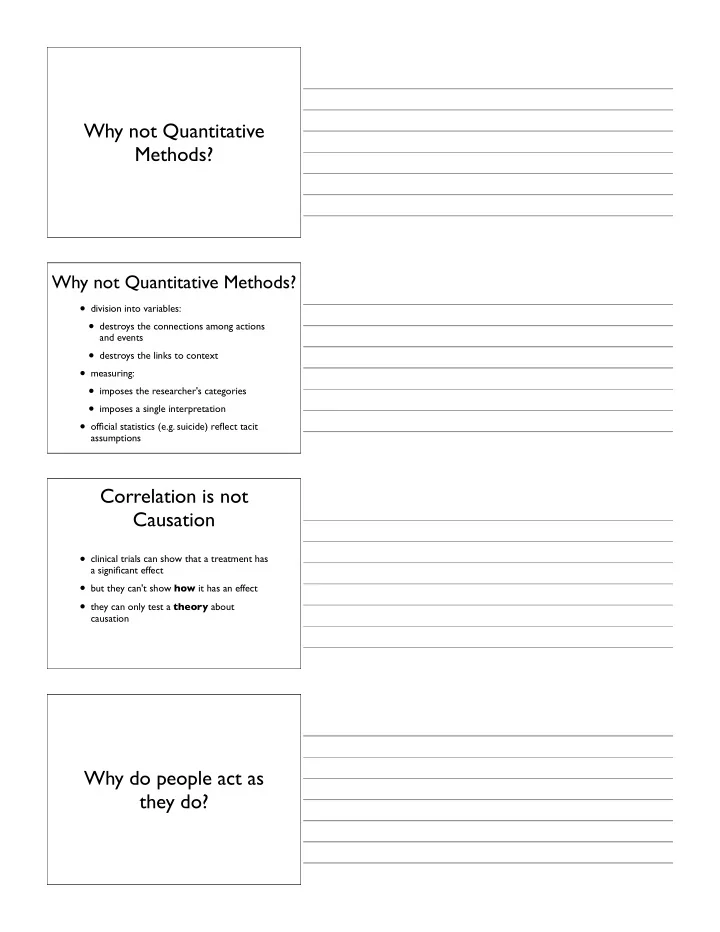

Why not Quantitative Methods? Why not Quantitative Methods? • division into variables: • destroys the connections among actions and events • destroys the links to context • measuring: • imposes the researcher's categories • imposes a single interpretation • official statistics (e.g. suicide) reflect tacit assumptions Correlation is not Causation • clinical trials can show that a treatment has a significant effect • but they can't show how it has an effect • they can only test a theory about causation Why do people act as they do?
Talcott Parsons • Socialization = internalization of societal norms • -> Personality - unconscious need- dispositions • -> Motivation - selection of goals • Reasoning about ends in a recognizable situation -> action • Social order is the result Deviancy: • lack of adequate reasoning • lack of appropriate norms Problems • Cognition and action are divided • People are 'judgemental dopes' who simply follow the norms • Everday life is too random to be studied • Situations (contexts, settings) are treated as objective & fixed Alfred Schutz • the social world is interpreted using common-sense categories • typifications: an American; a dog... • social science needs to begin with these constructs • and build interpretations of interpretations • if not, science creates a fictional reality - of variables, of structures...
There are multiple social worlds • in each one the natural attitude is suspension of doubt • each actor carries out a "subjective synthesis of identification" • an ongoing cognitive process of categorization • based on a social stock of knowledge • practical, recipe knowledge • "common sense" knowledge - what 'everyone' knows • people assume a reciprocity of perspectives Problems: • focus is on mental processes, the activity of subjective consciousness • i.e., social cognition • doesn't explain how individuals create a social (intersubjective) world • cognition and action are still divided Harold Garfinkel • People actively make sense together • Using shared methods of practical reasoning • Everyday actions are systematically produced and recognized • To achieve social order • Actions have public accountability (not subjective meaning) • The gap between cognition and action is avoided Ethnomethodology • A program of investigation • Based on this new view of social action • defines an important task for QR: • study the practices that produce social order
Recommend
More recommend